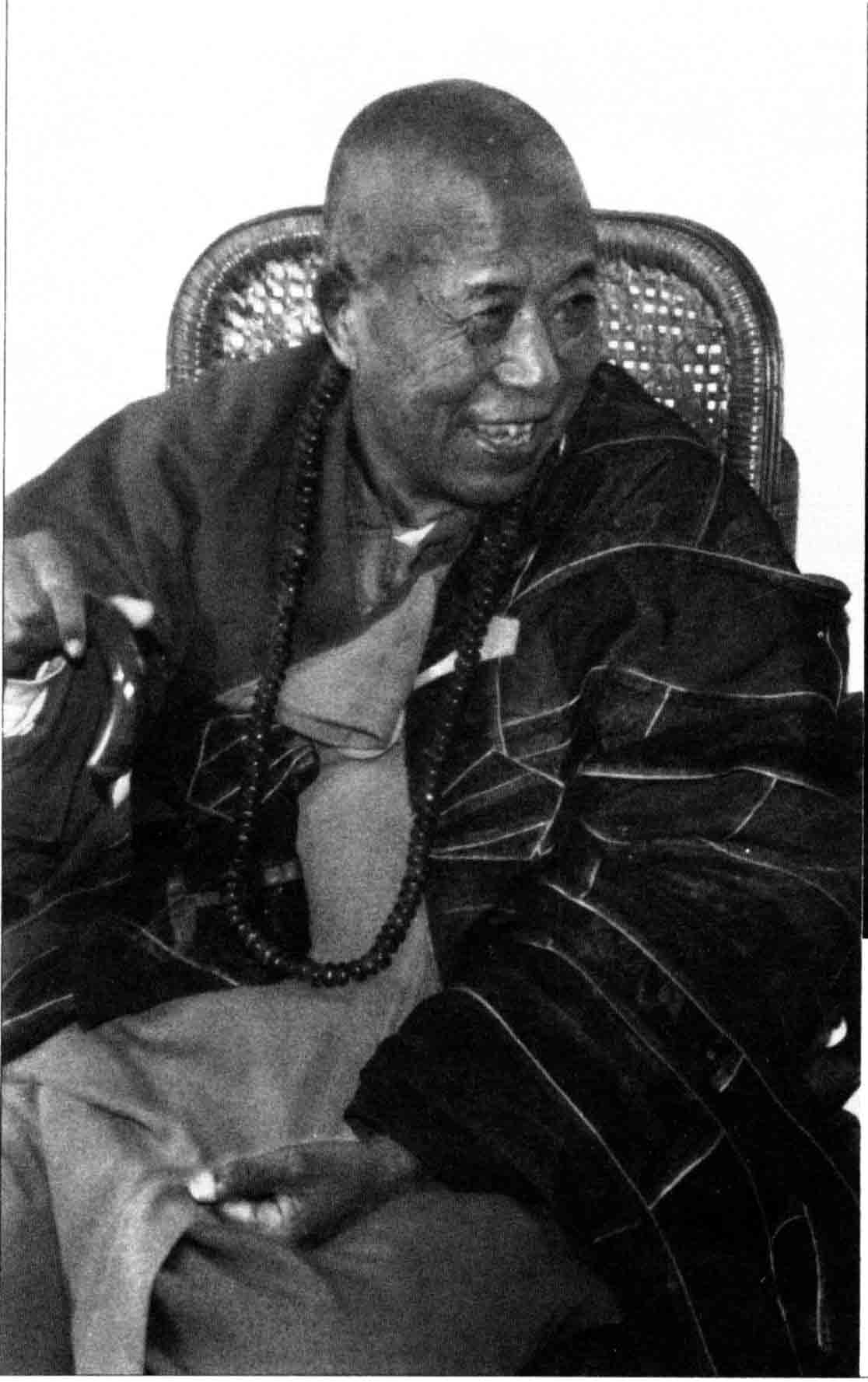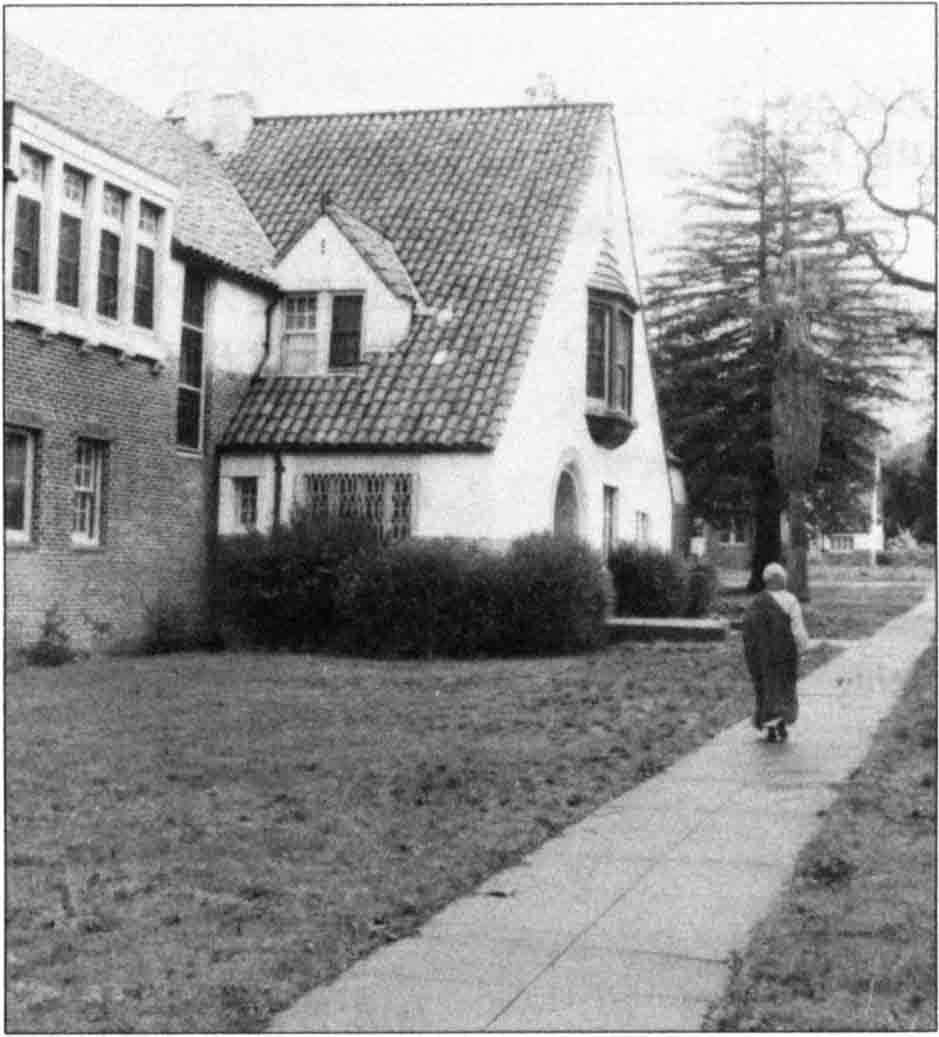
上人工作的範疇是很廣大的,他在東西方的弟子就有幾十萬,我自歎善根不足,沒有緣份親近上人,但是在去年(一九九四年)十月,我們在長堤聖寺剃度出家時的沙彌及沙彌尼們,十分幸運有上人在座主持剃度大典。那天上人的表情很是肅穆莊重,合禮合儀。雖然有上人在場,我並沒有激起什麼情感上特別的反應,倒是因為覺得自己走對了路而心裡覺得很平靜、很明白。
我知道法會中,可能沒有人真正知道上人的境界,上人可以說是「莫測高深」的。我也感覺得到上人知道在場每一個人的心,所以我們一切的問題、一切的求訴、要求面談等等,都是沒有必要的。上人廣大的心量裡,已經什麼都知道了,就這麼樣,他知道我們在道上應該怎樣前進。上人在簡短的開示中很明白地告訴我們真修行,該注重些什麼,一些也不含糊。上人說:「假如你不修行,就是釋迦牟尼佛做你的師父,也沒有用!」
上人的法身遍一切處,普度眾生。這個法身是無來無去的,我一直到現在都還不覺得上人不在了。六月上人「回」聖城時,我反而有一種上人在聖城的感覺。在我心深處,常有一種感激、幸運之情,因為在現今這個時代,我們還能有幸運遇到這樣一位善知識。
上人座下有的弟子已經追隨上人學習了十多二十年,或超過二十五年,也有弟子卻連上人的面都還沒見過。雖然沒見過面,但因為誠心研習上人的開示錄,許多人也開了智慧,甚至於開了五眼。我出家之後,有一位比丘尼師兄問我,為什麼連上人的面都沒見過就敢跟隨上人剃度出家?我回答:「因為我看過上人的書,看過上人的道場,見過他的弟子們。」這就足夠做我的決定的依據了。對我來說,上人的道場就是上人的法的所在地,修習上人的法的地方,將上人的法在日常生活中表現出來的地方,是考驗我們的地方。我們是向前進呢?還是向後退?就在上人的道場中就可決定出來。
正如六祖惠能大師,於六十多年前在中國東北,上人因為廬墓住小茅蓬,對上人說的預言,因上人的辛勤努力得以使正法在西方流傳下去,現在繼承上人遺法的責任,落在我們所有做弟子們的肩上,我們不論是舊的老弟子或新進的弟子,也不論我們見過沒見過上人的面,都應該發願立志生生世世都要再找到上人、認識上人、追隨上人,並將自己的身心性命奉獻出來維護正法。 |
|
The scope of the Venerable Master’s life work has been tremendous, and his disicples number in the hundreds of thousands, both East and West. I never had sufficient good roots to get to know the Master personally, but when our group of Shramaneras and Shramanerikas left the home life in October, 1994, at Long Beach Sagely Monastery, we were fortunate enough to have him preside over the ceremonies. His countenance was serious and solemn, as befitted the occasion. In my case, his presence elicited no special emotional response, but gave rise to a still, clear, and alert mind, as well as a solid awareness of being on the right path.
I was also aware that probably no one in the assembly could fathom his state—he seemed to be the “inscrutable Chinaman” par excellance. At the same time I felt that he knew the mind of every single person in that gathering. Thus there was no need for questions or answers, audiences or appeals. His vast mind already knew and acknowledged everything. This was just the way things were. He knew what we needed to advance on the Way, and in a brief Dharma talk told us unequivocally what to focus on: real, personal cultivation. “If you fail to cultivate, even having Shakyamuni Buddha as your teacher won’t be of any use.”
The Master’s Dharma-body pervades everywhere and takes beings across universally—and this body does not come or go. I have not felt his absence. On the contrary, after the Master’s return to the City of Ten Thousand Buddhas in June, I have felt a subtle presence about the City, and my deepest feeling is that of gratitude, even awe, that we have managed to meet such a Good and Wise Advisor in this day and age, and got to know the proper Dharma.
The Venerable Master has disciples who have studied under him for ten, twenty, even twenty-five years. He also has disciples who have never met him. In spite of that, many people have opened profound wisdom, even opened the five eyes, just by sincerely studying his books and talks. After I had left home, a Bhikshuni asked me how I dared to take this step without having ever met the Master before. I answered: “I’ve read the Master’s books; I’ve seen his Way-places; I’ve met his disciples,” and I felt these were quite sufficient grounds to base my decision on. To me, the life at the Way-place is where the Master’s Dharma is embodied, put to practice, lived out in the midst of ordinary, daily circumstances. This is where we are tried and tested, this is where advance or retreat on the Way takes place.
Just as the Sixth Patriarch Hui Neng prophesied over sixty years ago, appearing by the Master’s graveside hut in Manchuria, China, the Master’s untiring efforts have made proper Dharma self-perpetuating in the West. The responsibility of carrying on this legacy lies now with us, all of his disciples. No matter whether we are old or fledgling disciples, whether we ever met the Master or not, we can and should resolve to meet him again. Life after life we can vow to meet him, recognize him, follow him, and dedicate our lives to upholding the proper Dharma.

|